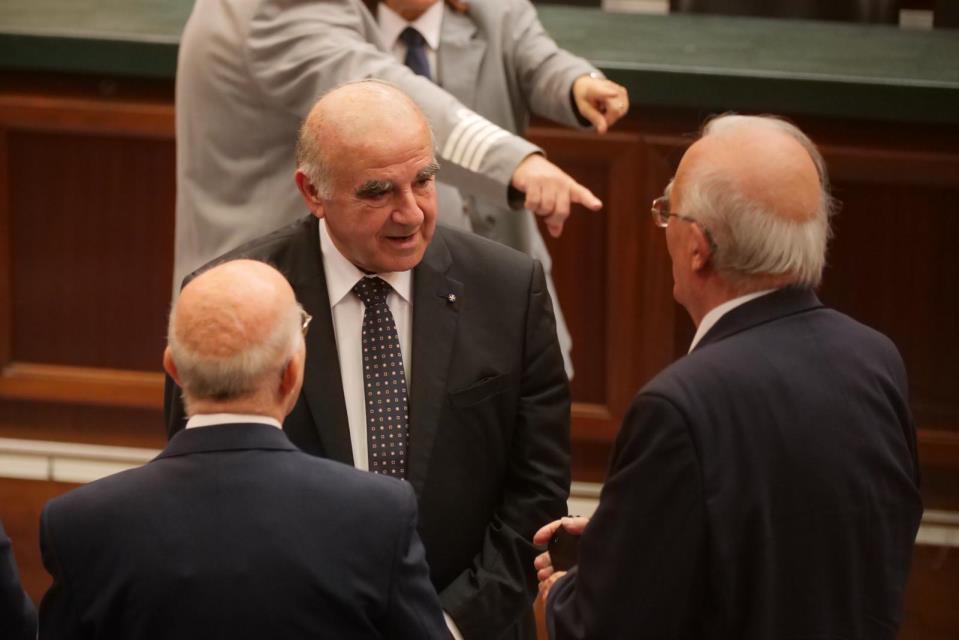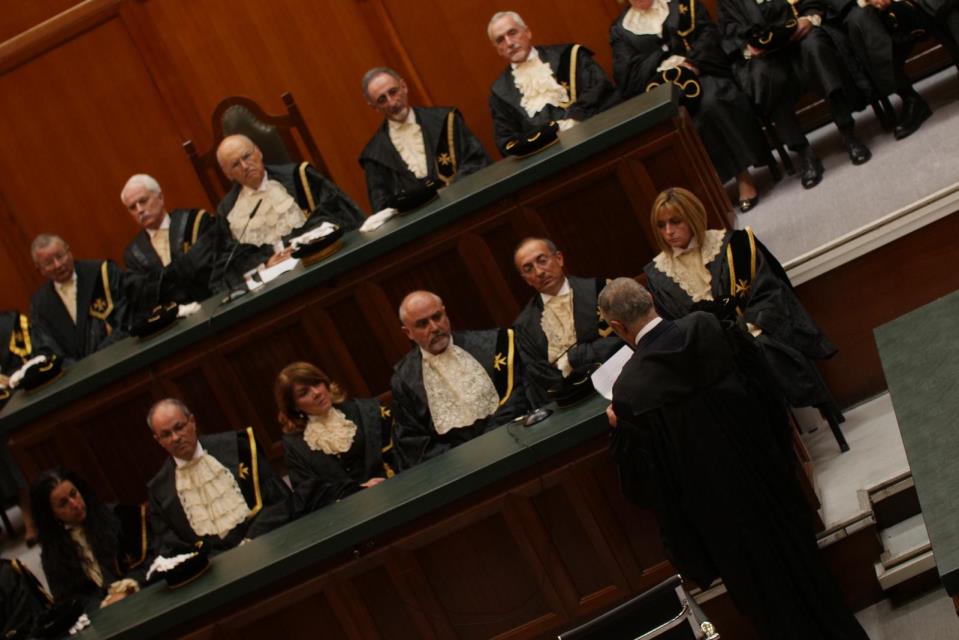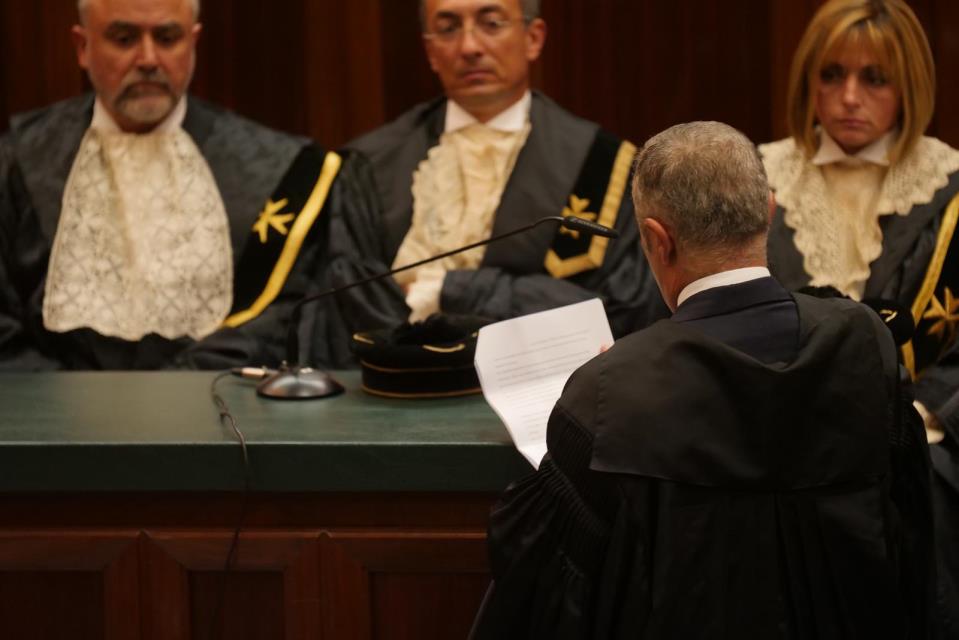Chief Justice Joseph Azzopardi said members of the judiciary are impeded from replying to questions sent by journalists, saying that if they had to do so it could compromise their position.
In his address at the start of the judicial year, the Chief Justice singled out “persons” – to exclude, he said, real journalists who “know what to ask and what not to ask” – who expect answers from judges and “even give them deadlines”.
It is easy to attack members of the judiciary because they cannot reply, he said. But journalists should understand that members of the judiciary are not politicians or chairmen of parastatal entities, from whom replies are expected.
“We cannot answer most of the questions (journalists ask) not only because we are impeded from doing so by the Code of Ethics, but also because each word we say can lead to a recusal in some cases. Our obligation is to decide, not to abstain,” he said.
As Chief Justice, he said he had the duty to serve as Vice-President on the Commission for the Administration of Justice where “I am obliged to participate in its decisions. Therefore have patience, and wait for our retirement to ask for our opinion.”
He said that the Judicial Appointments Committee works and assured that the Committee is scrutinising every application in every detail. “We are not a rubber-stamp,” he insisted, adding that some nominations have been turned down. This should not be taken to mean that the lawyers in question are not capable in their job; but they needed more experience, especially in litigation, for them to become a functional part of the judiciary.

Lawyers who have the ambition to become magistrates would do well to speak to those already in office for them to be able to understand better the responsibilities that come with the position.
“Magistrates can be compared to water containers that overflow with every drop of water put into them,” he said. People should be thankful for them taking on the workload, which is growing also because of a steady increase in the population, particularly of foreigners who, in the same proportion as the Maltese, commit crimes.
On the Commission for the Administration of Justice, he said that proceedings before it must, according to the law, be held in chambers and not in the public. He explained that recently the disciplinary committee had decided a case and the complainant had been notified. “You know what happened next? Before the decision arrived before the Commissioner for the Administration of Justice, it had already appeared in the newspapers. The complainant, who presumably rushed to the newspapers, gave no heed to the orders that the decision is not published. This had happened without anyone taking into account that an appeal had been tabled before the Commission.”

He pointed out that as the judiciary could not arbitrarily decide not to follow the law, neither could the press. “Nobody has the right to decide to ignore the law because he feels it is unjust. If that is the case and the law is out-dated, it should change and not be broken.”
He explained that judges were people who were appointed by other people, and “not divine inspiration” and were therefore subject to error.
The Chief Justice ended his speech with praise for Madam Justice Lorraine Schembri Orland, who recently started a new position in Strasbourg, and Magistrate Paul Coppini, who is to retire this month. “I wish to thank them both for their service and what they do for our country.”

Louis De Gabriele, President of Chamber of Advocates
The President of the Chamber of Advocates, Louis De Gabriele, has repeated his call for a law to regulate the legal profession, in a hard-hitting speech marking the opening of the court calendar.
“I was hoping that this would be the year when I could declare that the Bill regulating our profession had been tabled in Parliament. But unfortunately, once again, in spite of promises by government in this regard, and in spite of agreement between the parties, this Bill has not yet seen the light of day,” De Gabriele told the assembled judiciary and justice minister Owen Bonnici.
The Chamber had submitted its first draft law ten years ago, said the Chamber President, but the bill still appeared to be “an unattainable summit,” he said.
The environment had changed and the profession had evolved, as well as grown fivefold and the current rules were struggling to regulate the profession, he said. The current system of self regulation needed to be revised.
He argued that in order to have a strong and competent judicial infrastructure in future, Malta needed a “strong, independent, integral and competent advocacy.”
The need for a law to regulate the legal profession was one of the principal shortcomings flagged by last month’s MoneyVal report, which perceived this a “significant risk” in addition to the fact that Malta did not have “fitness and properness testing,” for the legal profession.
It was the perfect opportunity for government to face down one of the main criticisms in that report, urged the veteran lawyer, making the point that the proposed bill actually addressed each one of the deficiencies mentioned in the report.
By implementing this bill, the government would also be sending out an important signal to the international community that Malta was determined to address the criticism and risks it was facing in the international anti money laundering framework, De Gabriele said.
“Meanwhile, with more patience, but with perseverance, the legal profession waits.”
De Gabriele also announced that the Chamber of Advocates had launched a consultative paper on the lifting of the strict rules currently preventing members of the legal profession from advertising their services.
This served the interest not only of the lawyer but also of potential clients who shared an interest in selecting the right professional to provide him with legal assistance, De Gabriele said.
Institute of Maltese Journalists
The Institute of Maltese Journalists issued a response to the Chief Justice's statement. "With reference to Chief Justice Joseph Azzopardi's speech this morning marking the start of the court calendar, the Institute of Maltese Journalists would like to point out that the Chief Justice has every right not to answer questions sent to him if he is precluded from doing so for ethical reasons. This however does not mean that there is any harm in journalists sending questions, or indeed any reason for them not to do so, especially in light of the fact that the Maltese courts and judiciary lacks a proper media communications department, which should be considered essential for any entity or organisation in this day and age."